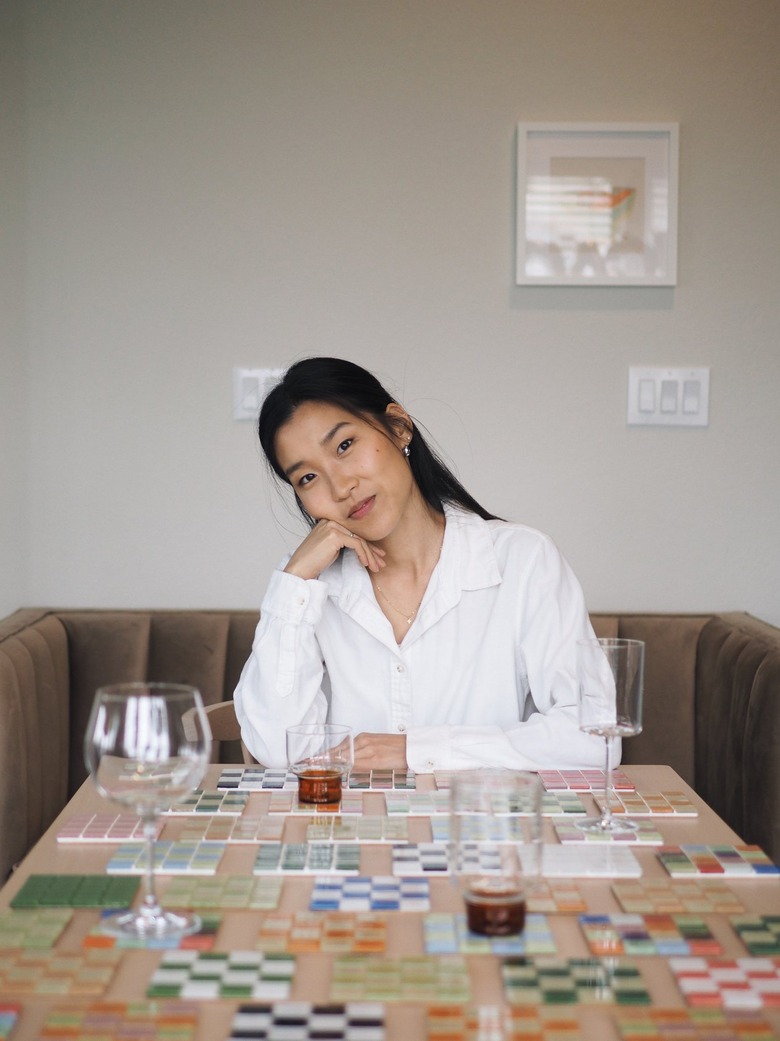Grace Kim Of SOL Studio On Uniqueness, Tiled Goods, And Her Korean Heritage
We may receive a commission on purchases made from links.
For designer and Korean American Grace Kim, art class was a safe haven. There, she was allowed to be herself, as such classes are designed to celebrate each student's uniqueness. This contrasted with Kim's experiences of being bullied for her culture, helping her find solace in the process of creating.
"Growing up in a community where Asians make up less than 5% [of the population], I've gone through my own experiences of being bullied and rejected for looking different," Kim, who grew up in Maryland, tells Hunker. "So being in my art classes ended up being my most cherished times. You realize that even if the whole class is instructed to paint the same still life, everyone's painting ends up looking very different and unique, and the beauty in those differences is recognized."
This appreciation for uniqueness has transcended into her adult life, eventually leading to the creation of SOL STUDIO, an online boutique known for its meticulously tiled goods and stylish checkered pickleball paddles.
Kim's foray into selling handmade items didn't start with checkerboard beauties, though. Like many during the pandemic, Kim — who has a background in costume design — found herself without work when the theater industry shut down. Unsure of when work would pick up, she began designing and creating 3D Korean face masks (similar to this one) out of fabric. She then started selling them on Etsy at an affordable price in hopes of helping her community.
From there, Kim began making items she wanted but couldn't find or afford and posting them on social media. People then started expressing interest in her creations, which is something she attributes to the growing importance of home sparked by the pandemic. "I think people realized how important it is to love the feel of your home and what your space creates and represents for you," Kim says.
With that in mind, Kim was intentional with what she created. "As a maximalist at heart, I persistently hand-made things that I felt made my space feel more like me, from fork-shaped pillows to canvas mini tote bags. And that's how it all began," she says.
Kim attributes this attentiveness to her heritage. "As a Korean American, I take pride in doing everything with gentleness, care, and attention to detail," Kim tells Hunker. She adds, "Growing up, I didn't have a whole lot, and I have seen my parents struggle to make sure my sister and I were okay. I think these experiences taught me to be the entrepreneur and artist that I am today. I make the most with what I have in the best possible way that I can and strive to make things look beautiful but also practical and affordable."
Yet another way Kim's work is influenced by her background is in her company's name. "My English name is Grace, but people who are closest to me call me by my Korean name, 솔이, pronounced 'Sol-Lee.' That's where the name of my business 'Sol' comes from," she explains. Meanwhile, her sister's Korean name is Jin. When placed together, their names create "Jin-Sol," or "to be sincere" in Korean, says Kim.
"My parents would say that their main focus when raising both of us was that we would grow up to be genuine and sincere people. They were almost stereotypical Asian parents in every way except for when it came to what we wanted to make of our careers," reflects Kim. "They let us do what made us happy, and this is something that I will always be grateful for."
On that note, when asked how being AAPI has affected her career as an artist, Kim shares that it has helped her more than it has hurt her. She currently lives in Austin, Texas, where she's found support among local AAPI artists and creatives as well as opportunities to participate in events for AAPI Heritage Month. In doing so, Kim hopes that she'll be able to encourage other AAPI artists and creatives to do what makes them happy — just like her parents wanted for her.



